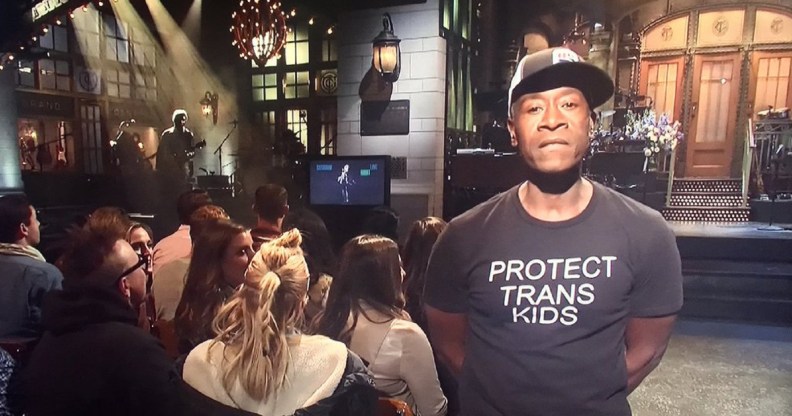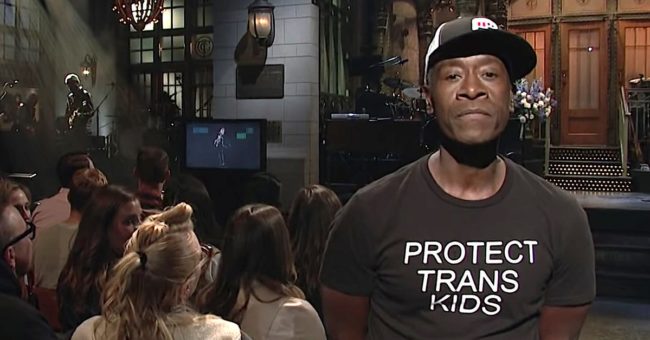Don Cheadle wears ‘protect trans kids’ t-shirt on SNL

Don Cheadle wore a ‘protect trans kids’ t-shirt
Don Cheadle wore a 'protect trans kids' t-shirt
Avengers star Don Cheadle used his platform hosting Saturday Night Live to show his solidarity with transgender kids.
The actor, best known for his role as James Rhodes in the Marvel cinematic universe, took the opportunity while hosting the NBC show on February 16.
Don Cheadle quietly showed solidarity with trans kids
In a segment near the end of the show as he introduced musical guest Gary Clark Jr, Cheadle was seen wearing a t-shirt bearing the slogan “protect trans kids.”
The actor stuck to the script and did not reference the message, but stood with his arms behind his back so it could be read.
Fans on Twitter were moved by the gesture from Cheadle, who has spoken out against the Trump administration’s actions previously.

Don Cheadle wore a ‘protect trans kids’ t-shirt
One response said: “As the parent of a transgender person, I was grateful and gratified to see @DonCheadle make a short-sleeved statement on last night’s @nbcsnl. Thank you.”
Another message said: “My brother is trans…. what my brother endures & never complains about would surprise anyone. I’m proud of him & allies like @DonCheadle. Thank you for not forgetting them. Equality should be a human right.”
A third fan wrote: “Thank you Don Cheadle for using your platform to help save lives.”
It was not the star’s only pointedly political fashion statement of the night, also wearing a Soviet Union hockey jersey bearing the name Trump.
Trump administration has come under fire for policies targeting trans kids
Cheadle hasn’t explained what specifically motivated the gesture, but young transgender people have faced a significant roll-back of rights under the Trump administration.
Trump’s education secretary Betsy DeVos rescinded Obama-era guidance on protecting transgender children in 2017, sparking intense criticism.
In 2018, the Department of Education confirmed it would no longer investigate discrimination complaints from transgender students banned from using bathrooms conforming with their gender identity.
The Trump administration has also set out a policy shift to define a person’s sex as either male or female as identified by “immutable biological traits” at birth, barring recognition of transgender people.

